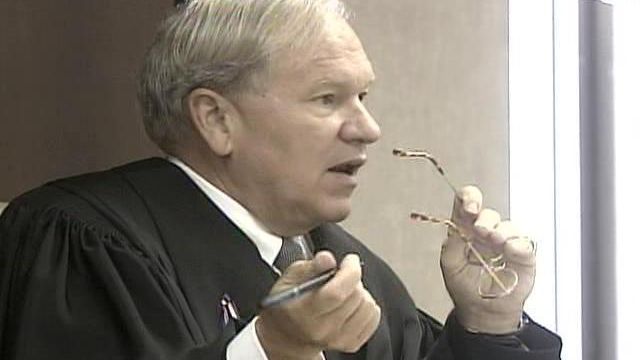Education
Judge: Money Alone Can't Improve N.C. Schools
The state spent about $290 million last year to improve student test scores at low-performing high schools. The judge overseeing the process said money isn't enough.
Posted — UpdatedRALEIGH, N.C. — About $290 million – that’s how much money the state spent last year to improve student test scores at low-performing high schools. But the judge overseeing the process said money isn’t enough.
Wake County Superior Court Judge Howard Manning used his courtroom once again Wednesday to highlight the problems within North Carolina's classrooms. He wanted to know what the state is doing to help students who aren't performing at grade level.
North Carolina Department of Public Instruction officials talked about the use of Personalized Education Plans, or PEPs, for struggling students.
“They help teachers determine how well a student is progressing, how well a student is learning,” said Robert Logan, associate superintendent of public instruction for innovation and school transformation.
PEPs are mandated at the elementary and middle school levels, but not in high school. State education officials said trying to do it is a challenge when high school students are taking different courses.
Manning said he thinks there needs to better monitoring of whether students are learning.
“I’m not off-base in demanding that it be done, when it’s not being done,” Manning said.
Administrators from Pamlico County shared strategies about how they turned around their low-performing school. Manning called it an example what does work, asserting that it's not a question of money, but a matter of leadership.
Manning said he has little tolerance for educators who allow students to fail.
“People who somehow or another are out there sucking their thumbs and not putting into play this stuff need to be taken to the barn,” he said.
Manning is overseeing the Leandro case, a lawsuit that claims the state's poor school districts don't give students an education equal to what students get in more well-off districts.
• Credits
Copyright 2024 by Capitol Broadcasting Company. All rights reserved. This material may not be published, broadcast, rewritten or redistributed.






